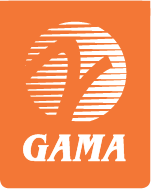|
GAMA Thanks House Appropriators for Supporting General Aviation
Washington, DC — The General Aviation Manufacturers Association (GAMA) today thanked the U.S. House Appropriations Committee for supporting the general aviation industry in its fiscal year 2018 transportation bill, through language improving the aircraft certification process in the U.S. and funding for alternative fuels.
“We are extremely pleased to see the Committee put teeth into their direction to the FAA to better utilize the Organizational Delegation Authority,” said GAMA President and CEO Pete Bunce. “GAMA has advocated for this for some time, and we appreciate the Committee’s support in making this a reality, which will benefit the U.S. economy, aircraft sales and create jobs.”
The Committee provided $1.3 billion for aviation safety overall, which is $11.2 million above the fiscal year 2017 enacted level and $51.7 million above the budget request. The Committee continues its direction requiring the Secretary of Transportation to provide annual reports regarding the use of the funds provided, including the total full-time equivalent staff years in the offices of aircraft certification and flight standards, total employees, vacancies and positions under active recruitment.
The Committee also provided $7 million for general aviation alternative fuels, $1.076 million over the Administration’s request. The general aviation community is committed to ensuring the transition of piston-powered aircraft from a leaded fuel to an unleaded avgas in a manner that is safe and preserves the utility of the general aviation fleet. GAMA believes this transition can be achieved in a way that balances environmental improvement with aviation safety, technical challenges and economic impact. This funding will ensure broad aircraft and engine testing based upon prior research, and provide necessary testing to achieve required FAA approvals and authorizations for the transition.
Additionally, GAMA commends the House Appropriators for taking the initiative to understand the specific elements of NextGen air traffic control modernization and for recognizing the U.S. airspace is the most complex and busiest the world, and faces unique challenges by serving a general aviation community that surpasses any other nation by far.
“The Committee’s action sends a strong message of support to the general aviation industry,” said Bunce. “We thank members of the Committee, particularly Transportation Subcommittee Chairman Mario Diaz-Balart (R-FL) and Ranking Member David Price (D-NC), and Appropriations Chairman Rodney Frelinghuysen (R-NJ) and Ranking Member Nita Lowey (D-NY), for this critical funding measure. We look forward to working with them and other members of the House and Senate to ensure final passage.”
For additional information, please contact Sarah McCann, GAMA Director of Communications, at +1 (202) 637-1375 or smccann@gama.aero.
GAMA is an international trade association representing over 100 of the world’s leading manufacturers of general aviation airplanes and rotorcraft, engines, avionics, components and related services. GAMA’s members also operate repair stations, fixed based operations, pilot and maintenance training facilities and manage fleets of aircraft. For more information, visit GAMA’s website at www.GAMA.aero.
|

